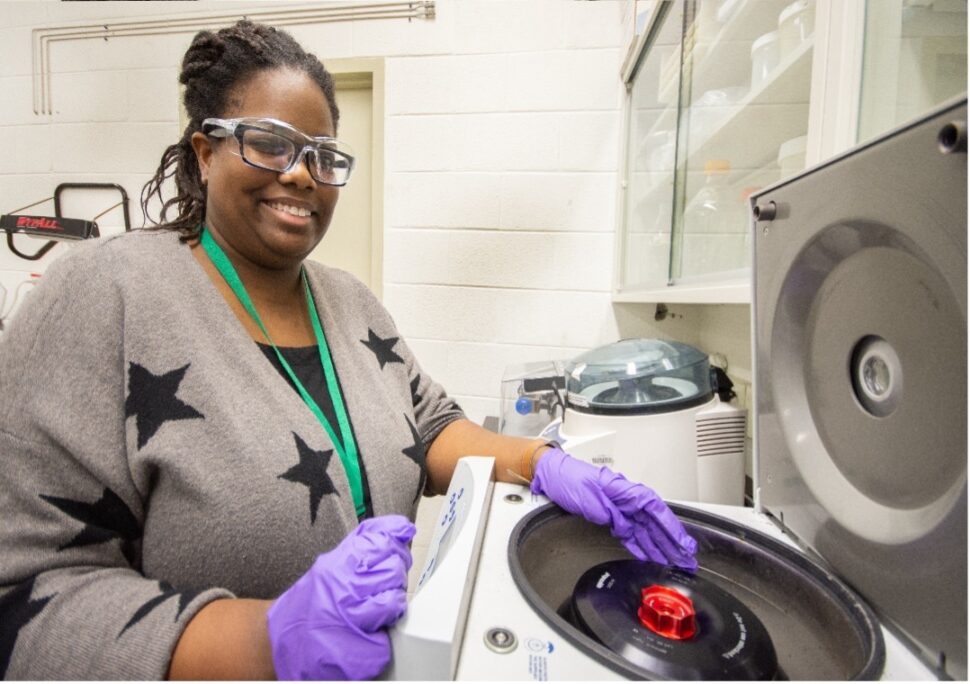Zuri Phillips, a recent bachelor’s graduate from Tennessee State University, explored the role that trees play in climate change as a participant in the Science Undergraduate Laboratory Internships (SULI) Program at Oak Ridge National Laboratory (ORNL).
Phillips’ research project focused on the production of methane in trees. Methane, the second most abundant trace gas in the earth’s atmosphere, is a major contributor to global warming. While previous studies have shown that soils are often major methane sources, more recent work suggests that the heartwood of trees also may harbor methane-producing microorganisms.
Phillips was part of a team led by Senior Staff Scientist Christopher Schadt, Ph.D., and Staff Scientist Melissa Cregger, Ph.D., in ORNL’s Biosciences Division. To better understand trees’ methane output, the team investigated the microorganisms of three tree species – Liriodendron tulipifera (tulip poplar), Fagus grandifolia (American beech) and Quercus rubra (red oak).
The team extracted and sequenced microbial DNA data from the wood samples of the three species taken from the Smithsonian Environmental Research Center in Maryland. They then used bioinformatics approaches to process and analyze the DNA data to understand the types of microorganisms within each tree.
The team found that the three tree species contained similar types of fermentative bacteria and methanogenic archaea, but in different quantities, depending upon the species and the type of wood tissue (heartwood versus sapwood) under study.
Through her internship, Phillips gained hands-on experience in a laboratory setting, picked up skills in coding and learned about the field of bioinformatics. “The SULI program helped me develop a host of skills that will benefit me in my future career,” she said.
At the conclusion of her spring 2020 SULI internship, Phillips presented her research project at a poster session for SULI interns. Her submission, titled “DNA Analysis of the Wood Microbiomes of Three Eastern Tree Species,” earned “Best Poster” honors.
Going forward, Phillips hopes to attend graduate school and continue her studies in biology.
“This experience at ORNL has helped me narrow down what I’d like to study as well as provide me with a prestigious entry on my CV,” she said.
The SULI program is sponsored by the U.S. Department of Energy Office of Science’s Office of Workforce Development for Teachers and Scientists. The program at ORNL is administered by the Oak Ridge Institute for Science and Education (ORISE).

